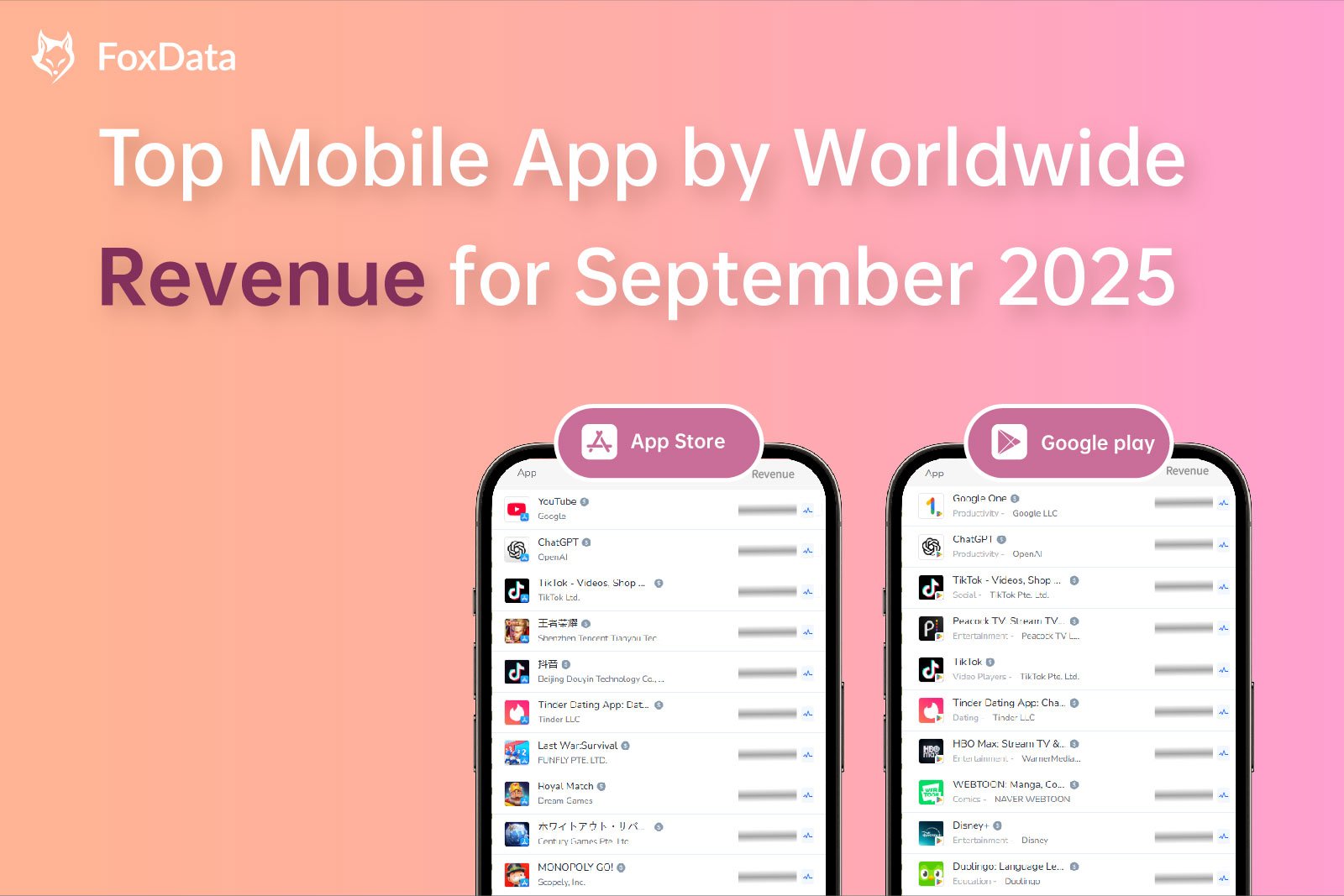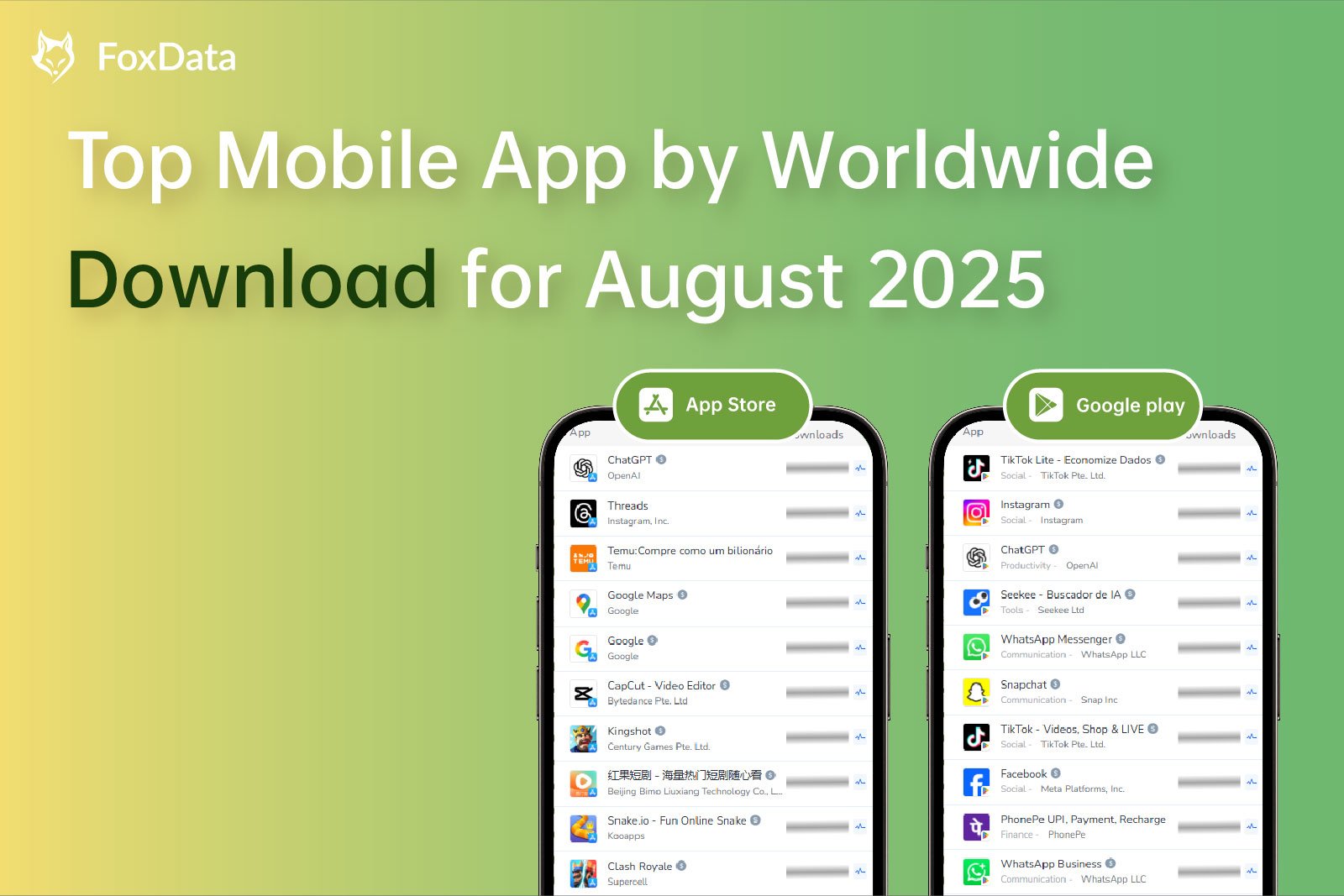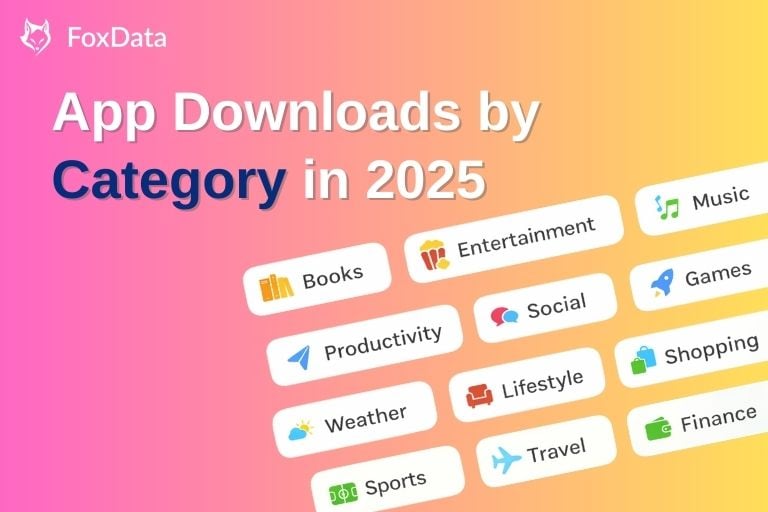2024 H1 Mobile RPG Market Insights in Japan
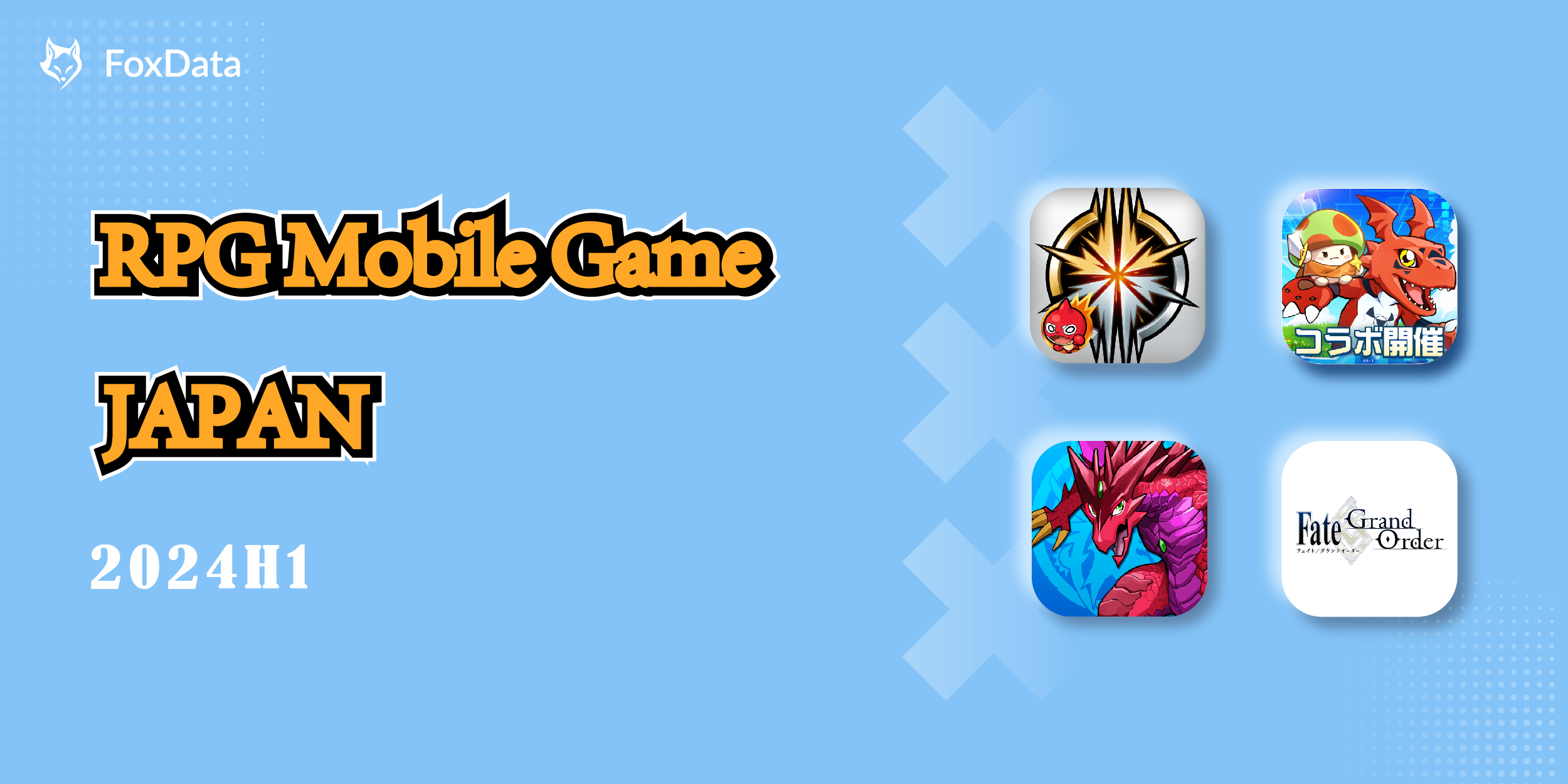
Recently, we noticed that the RPG game "Fate/Grand Order" from Japan has seen a massive surge in its global revenue ranking on the App Store, jumping up 88 places in August just from the Japanese market alone.
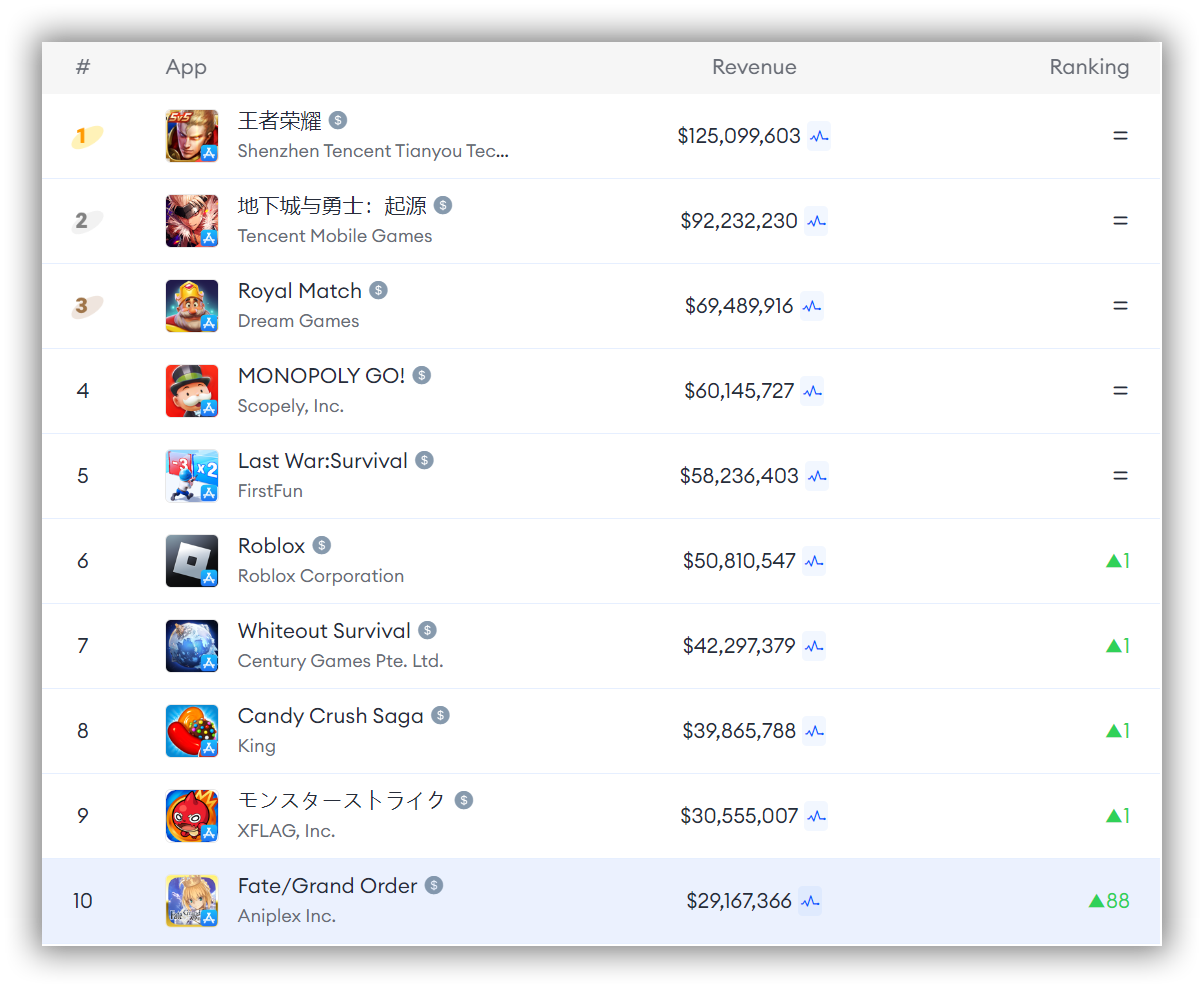
💡Read More: Top Mobile Games by Worldwide Revenue for August 2024

However, their revenue stands out remarkably, reaching $1,326,095,018 and accounting for 33.03% of the global market, ranking first worldwide. This highlights the exceptionally high ARPU (Average Revenue Per User) for this category of game in the Japanese market on the App Store.
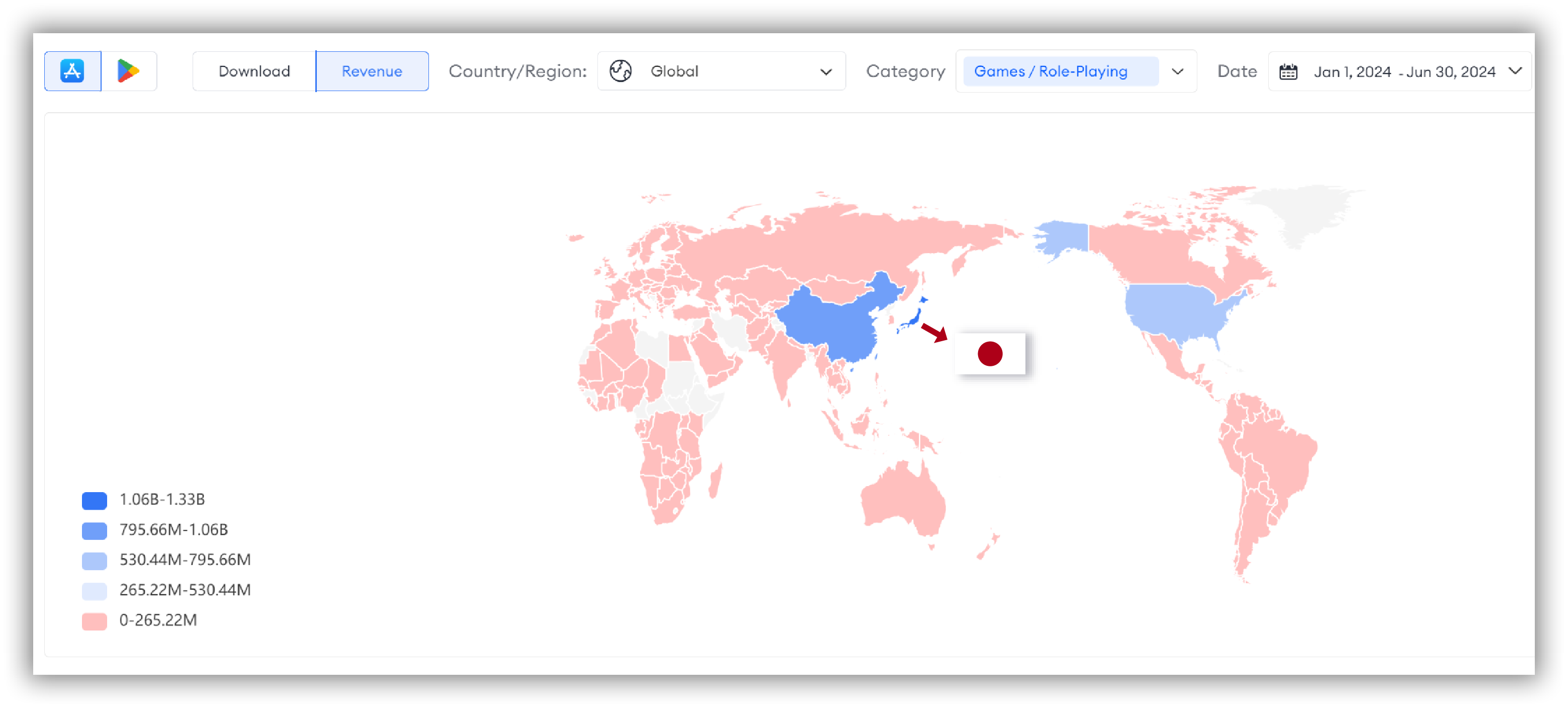
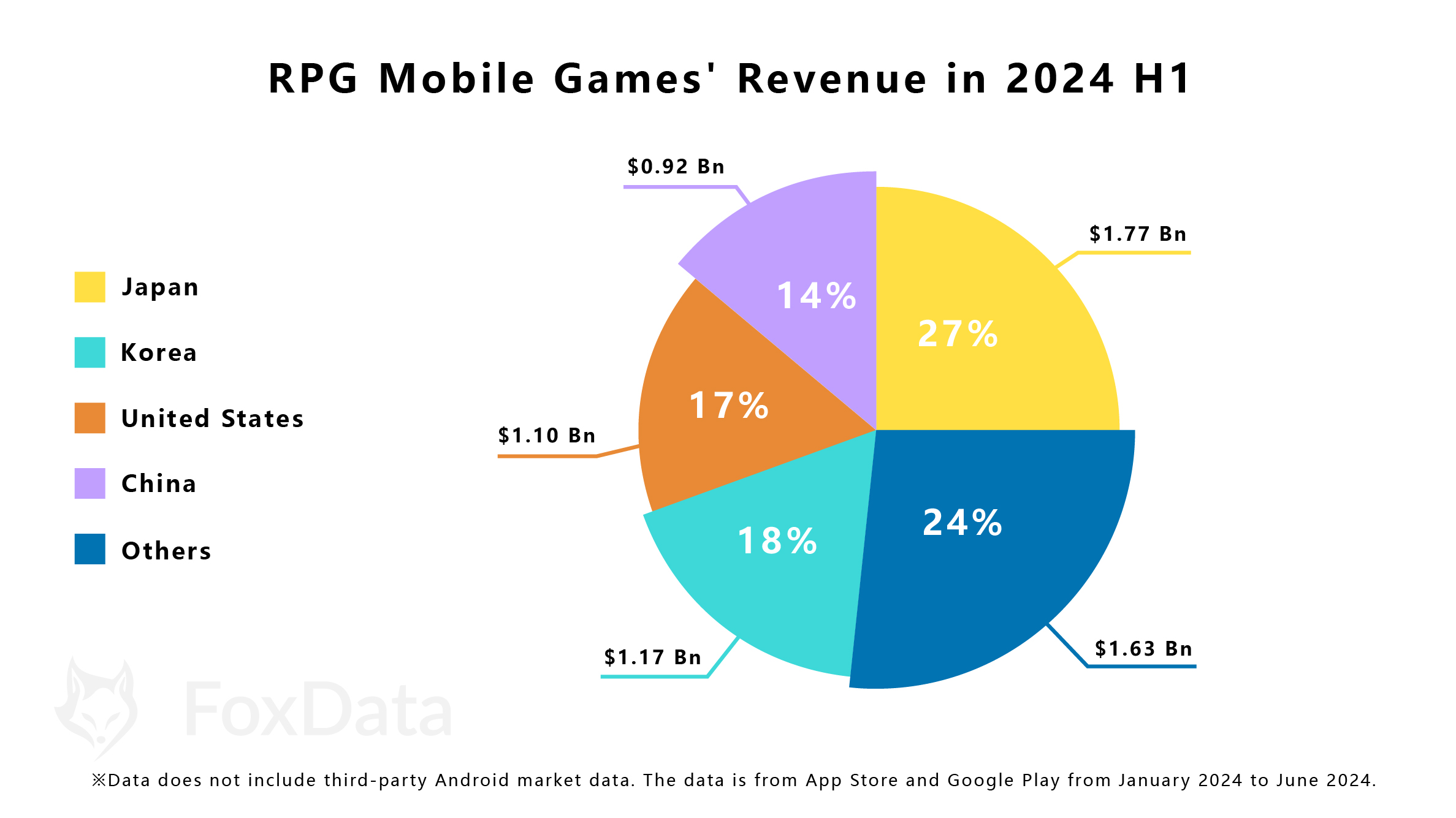
Below, I will specifically introduce the sales performance of RPG mobile games in Japan during the first half of 2024 and explain why they are so popular in the Japanese market.
We address your challenges with tailored data-driven solutions for each pain point.
From insights to revenue, FoxData mobile game analytics solution integrates competitive intelligence, smart user acquisition, market predictions, and player value optimization.
Most Popular Category
In the first half of 2024, Japan is not only the primary market for RPG games internationally but also the top market for RPG mobile games domestically. According to Market Segment-Category data, RPGs are the best-selling category among all mobile games in Japan, whether on the App Store or Google Play.
In Japan, RPG games account for approximately 26% of the total category size on the App Store, significantly surpassing the market share of other game categories.
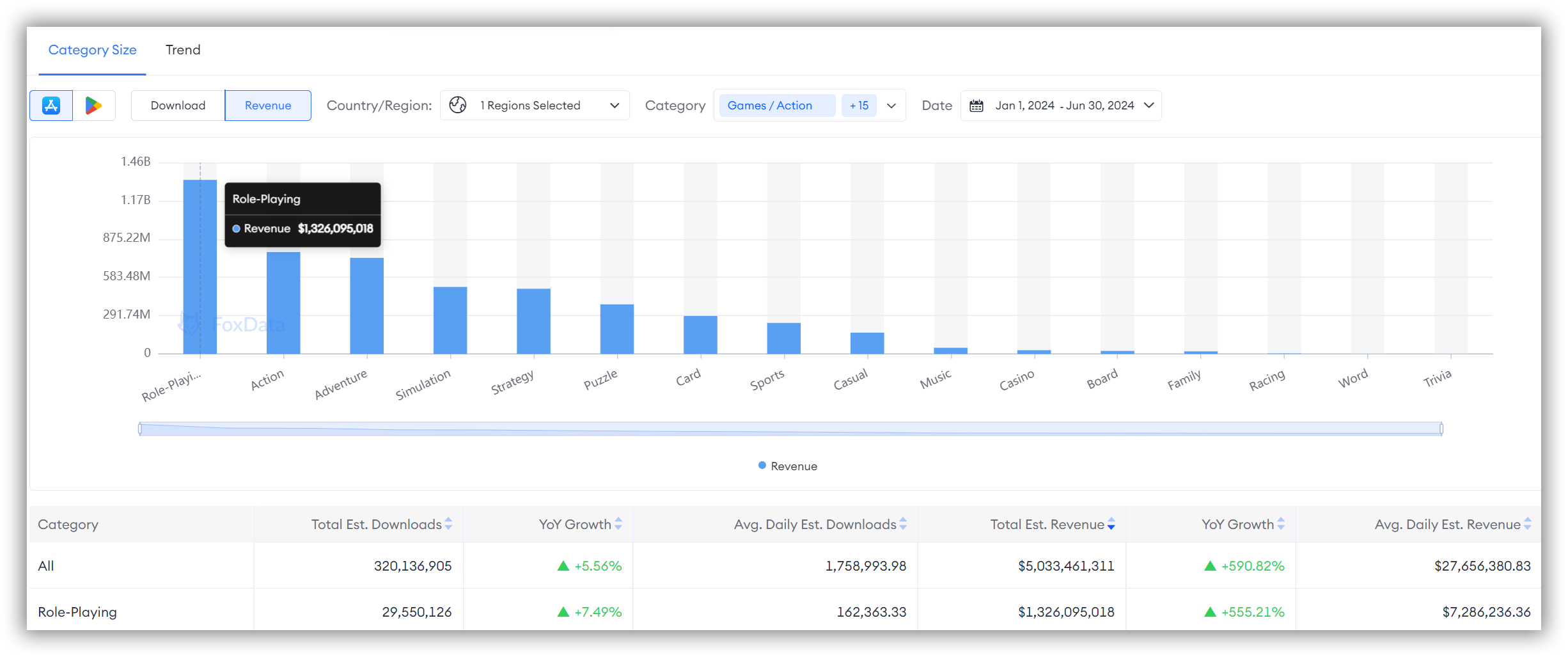
On Google Play in Japan, RPG games represent approximately 38% of the total category size, which is even 1.7 times the share of the second most popular category, "Action" games.
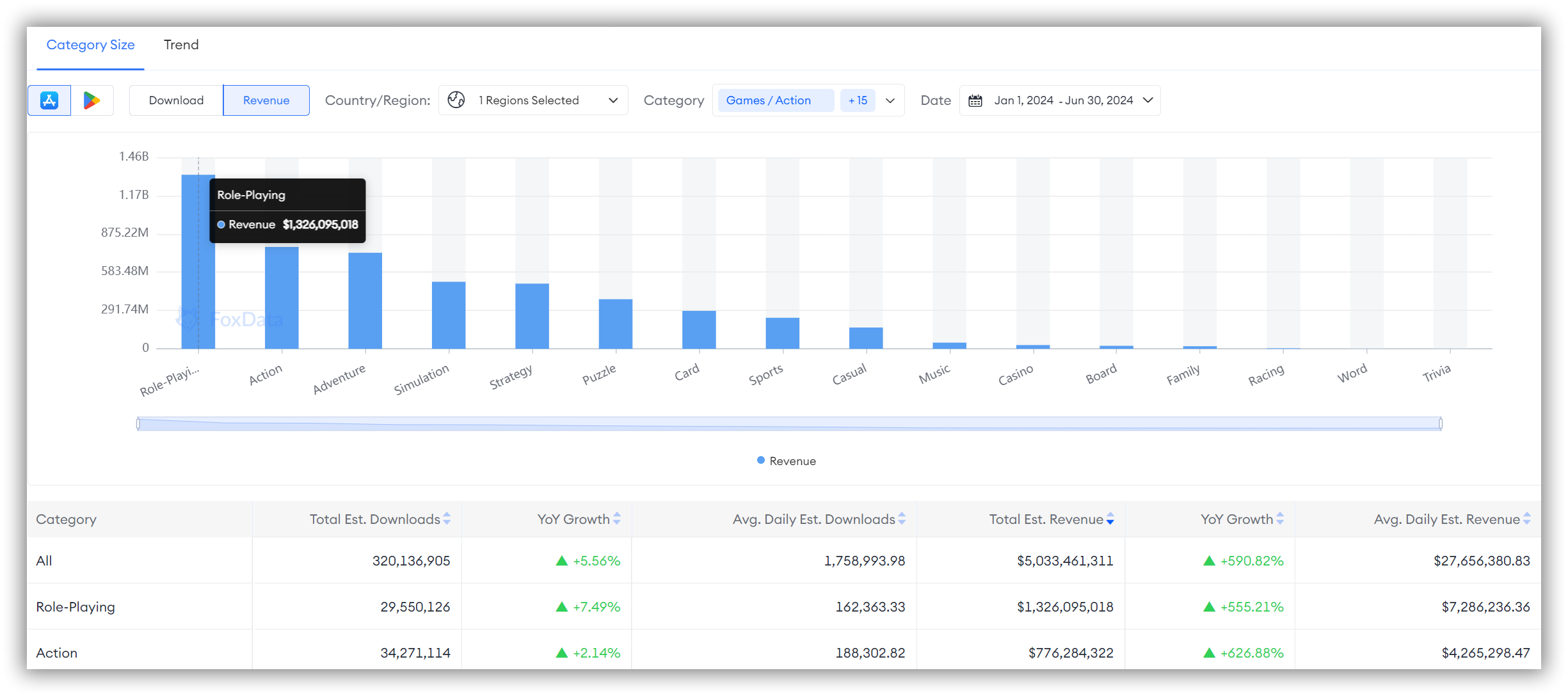
Best-Selling Games
- モンスターストライク (Monster Strike) - Ranked 1st
- キノコ伝説-デジモンテイマーズコラボ中 (Legend of Mushroom) - Ranked 3rd
- パズル&ドラゴンズ (PUZZLE & DRAGONS) - Ranked 4th
- Fate/Grand Order - Ranked 5th
モンスターストライク (Monster Strike) held the leading position with a revenue of $207 Million. $110 Million.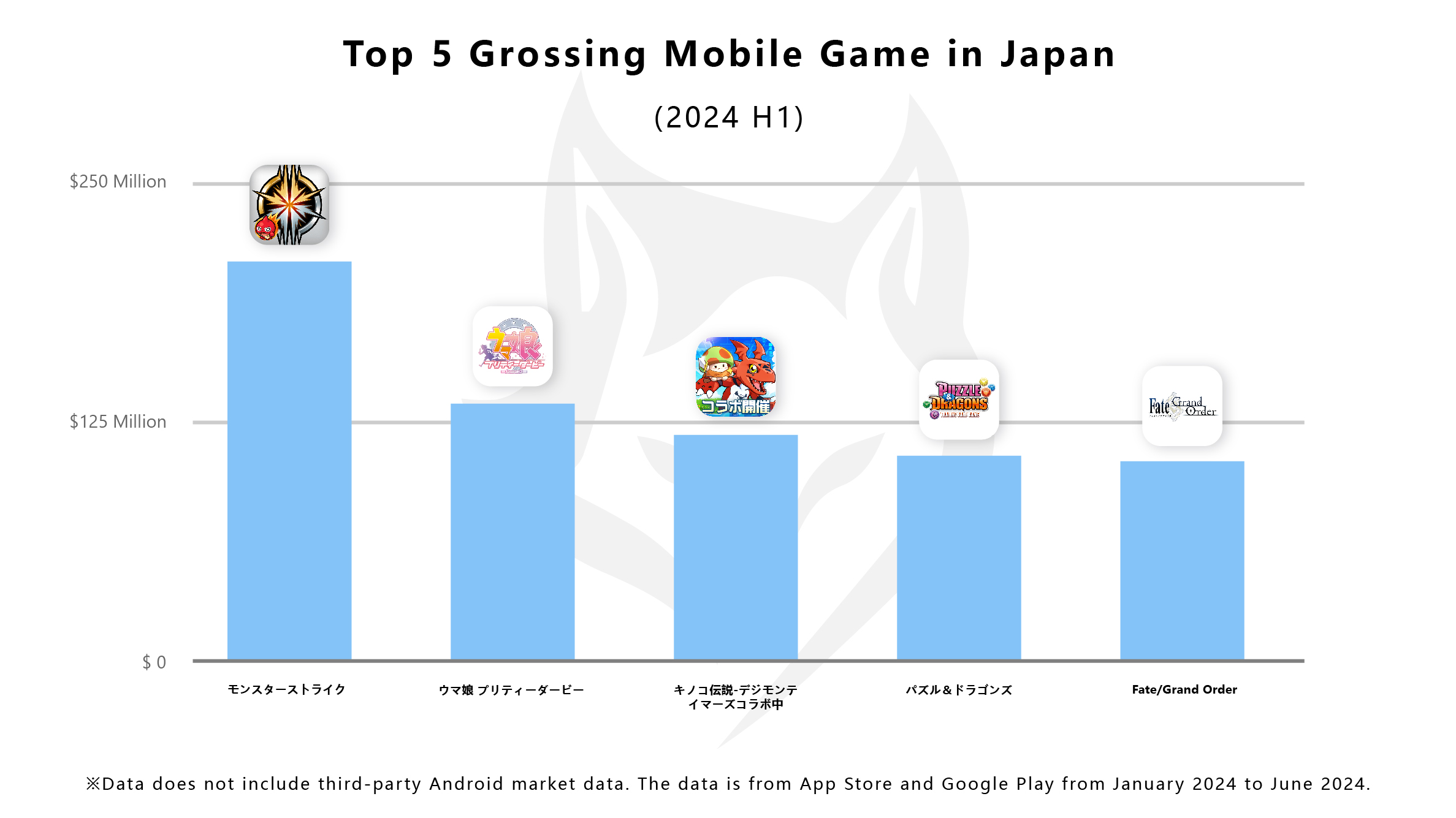
The game ranked second, ウマ娘 プリティーダービー (Umamusume: Pretty Derby), is primarily a simulation and strategy management game, but it does include some RPG elements. The character development and storyline progression in this game closely resemble the plot advancement and quest systems found in RPGs.
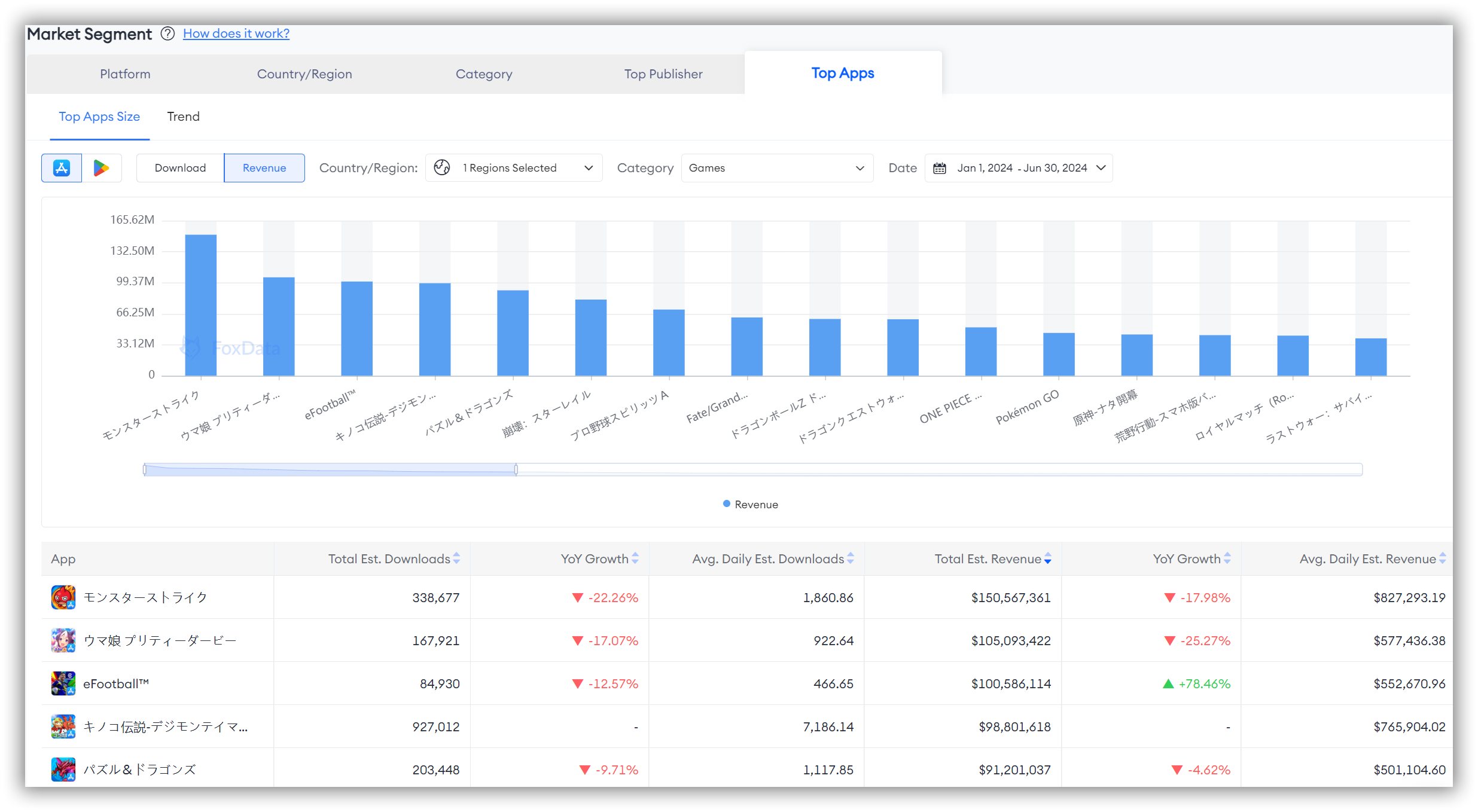
Why Are RPG Mobile Games so Popular in Japan?
Collecting culture in Japan
The practice of collecting and completing sets is a prominent aspect of Japanese culture, as seen in the popularity of Pokémon cards, Gundam models, and anime merchandise.This enthusiasm for collection extends into the realm of mobile gaming, particularly influencing the design and player engagement strategies of mobile RPGs.
In these games, players often pursue complete collections of virtual items, characters, and rare in-game assets. The allure of acquiring exclusive or event-specific versions of characters—each with unique skills or appearances—fosters a deep emotional connection with the game.
This connection not only drives in-app purchases and microtransactions as players seek to enhance their collections but also boosts participation in future gaming events, where new and special versions of favorite characters may be available.

Dive into the latest global app delisting data to uncover key trends, platform insights, and what app removals reveal about the app market in November 2025.
Whether you're a developer ready to integrate or a business leader exploring data solutions, we have the perfect path for you to get started.
Evolving Gacha Mechanics in Japanese Gaming
The term "gacha" is derived from "gachapon," a Japanese onomatopoeic word that mimics the sound of a toy vending machine's hand-cranking action and the capsule's subsequent landing in the collection tray. In the realm of mobile gaming, this concept has been adapted into what are commonly referred to as "gacha pulls" or "loot boxes."
These gacha games allow players to spend in-game currency or real money to receive randomized virtual items, characters, equipment, or units through a virtual lottery system, akin to a digital vending machine. These items are crucial as they can significantly enhance gameplay, provide avenues for advancing in the game, and offer the excitement of obtaining rare or superior items.
Over the years, Japanese game developers have refined and diversified the gacha system, introducing sophisticated variations such as Step-up gacha, Package gacha, Scratch gacha, and Sugoroku gacha. These innovations stem from extensive A/B testing and an evolving understanding of player engagement, though much of this specialized knowledge remains untranslated and inaccessible to non-Japanese speaking audiences.
Moreover, the popularity of gacha games has been bolstered by their frequent use of anime or manga-style graphics and narratives, appealing significantly to fans of these genres. These games not only allow players to engage in battles and progress through compelling storylines but also cater to the collectivist culture by enabling players to amass and showcase their collection of favorite characters and items. This blend of gaming mechanics and cultural affinity has solidified the position of gacha games in the Japanese mobile gaming market.
This mechanism is commonly found in Japanese mobile role-playing games (RPGs).
Players can spend in-game currency or real money to acquire rare or powerful characters, enhancing the sense of collection and excitement.
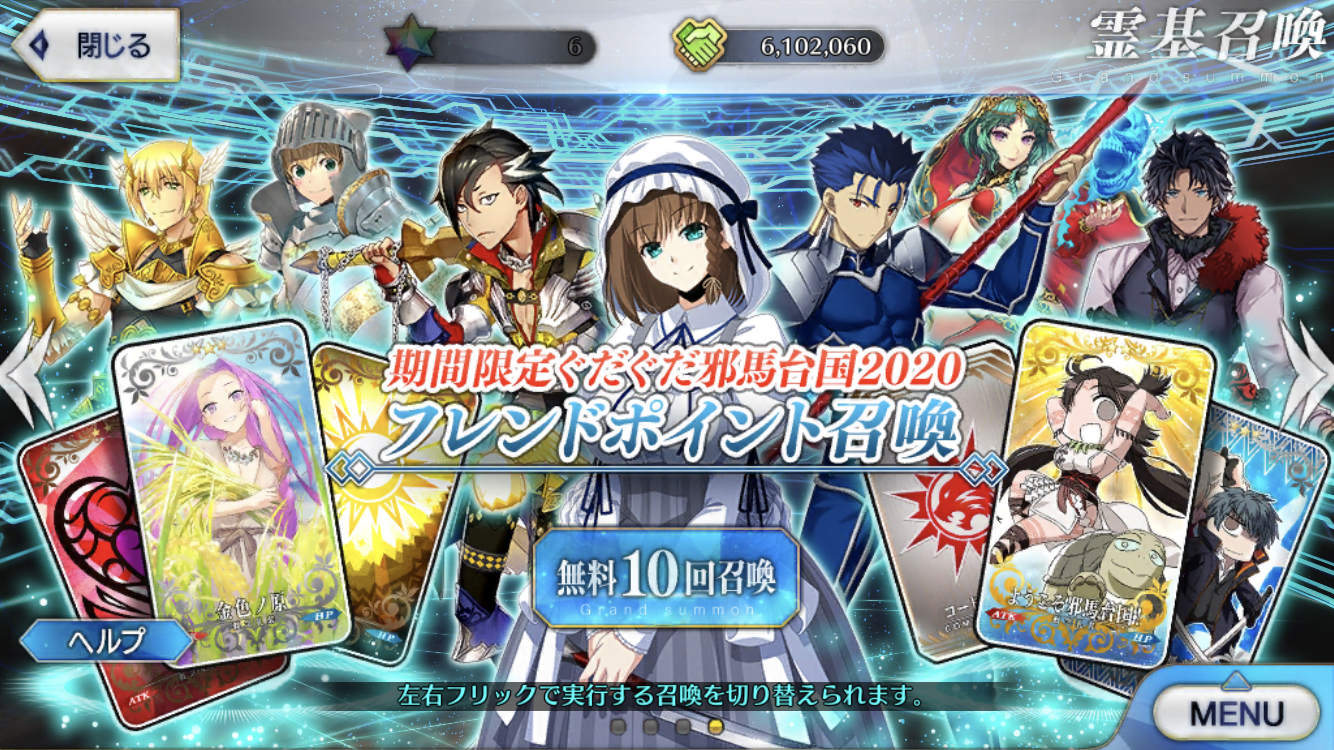
Social Interaction and Community
Many RPG mobile games incorporate social elements such as guilds, team quests, and PvP modes. These features allow players to interact with friends and other players, enhancing the game's stickiness.
Cooperative play fosters social interactions and community engagement.
RPG game players value community. Online communities are where most RPG players interact with each other. In Japan, 65% of RPG players visit online communities weekly.
In Japan, most action RPG players visit game communities to find entertaining game content. Meanwhile, 42% of puzzle RPG players look for content that helps them improve their gameplay.
Want to see more market insights?
Now just join FoxData and embark on a journey of business growth as we unveil a FREE App Data Analytics Tool, which boosts your downloads, increases your user base, and watches your performance soar to new heights!


